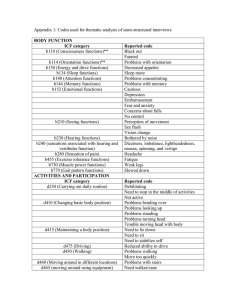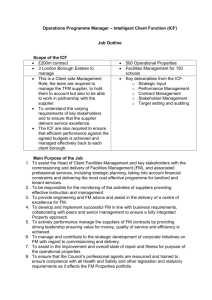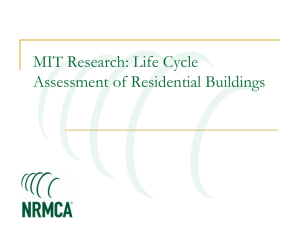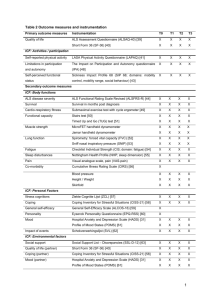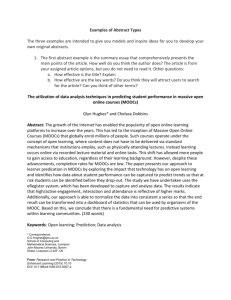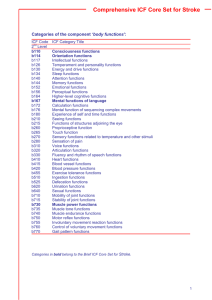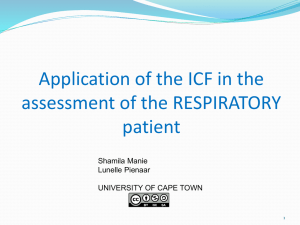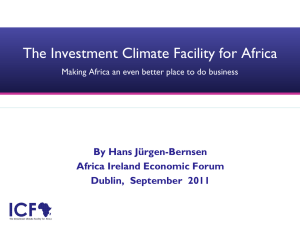Africa’s Investment Climate Facility: Does it deserve U.S. support?
advertisement
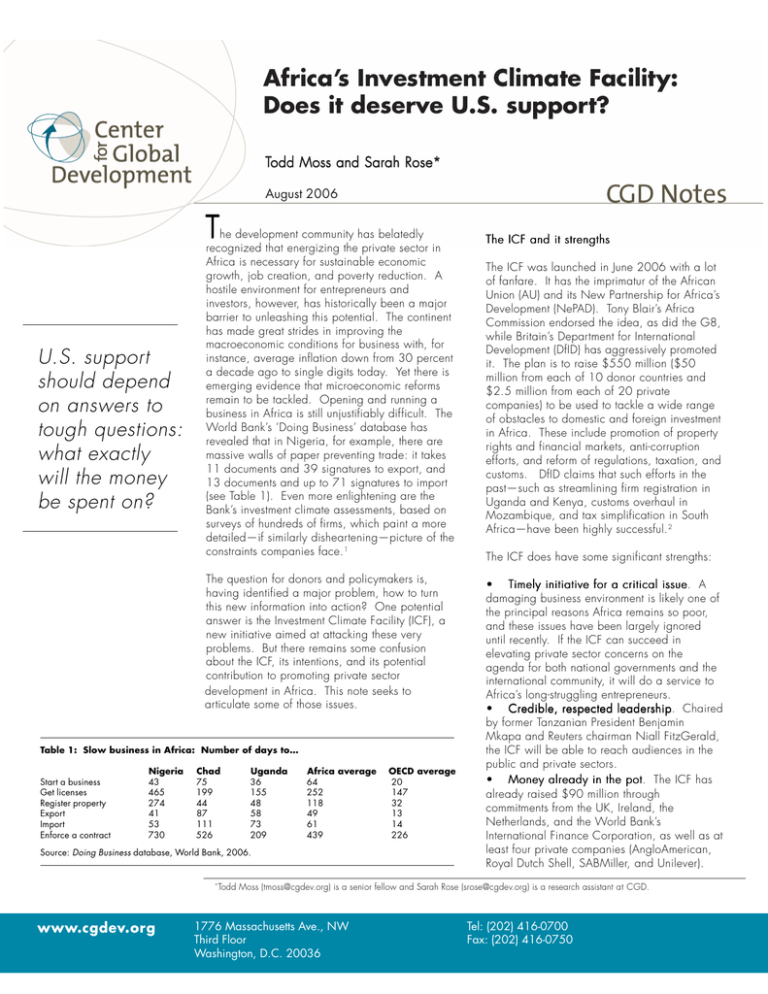
Africa’s Investment Climate Facility: Does it deserve U.S. support? Todd Moss and Sarah Rose * Rose* August 2006 T U.S. support should depend on answers to tough questions: what exactly will the money be spent on? he development community has belatedly recognized that energizing the private sector in Africa is necessary for sustainable economic growth, job creation, and poverty reduction. A hostile environment for entrepreneurs and investors, however, has historically been a major barrier to unleashing this potential. The continent has made great strides in improving the macroeconomic conditions for business with, for instance, average inflation down from 30 percent a decade ago to single digits today. Yet there is emerging evidence that microeconomic reforms remain to be tackled. Opening and running a business in Africa is still unjustifiably difficult. The World Bank’s ‘Doing Business’ database has revealed that in Nigeria, for example, there are massive walls of paper preventing trade: it takes 11 documents and 39 signatures to export, and 13 documents and up to 71 signatures to import (see Table 1). Even more enlightening are the Bank’s investment climate assessments, based on surveys of hundreds of firms, which paint a more detailed—if similarly disheartening—picture of the constraints companies face. 1 The ICF and it strengths The question for donors and policymakers is, having identified a major problem, how to turn this new information into action? One potential answer is the Investment Climate Facility (ICF), a new initiative aimed at attacking these very problems. But there remains some confusion about the ICF, its intentions, and its potential contribution to promoting private sector development in Africa. This note seeks to articulate some of those issues. • T imely initiative for a critical issue issue. A damaging business environment is likely one of the principal reasons Africa remains so poor, and these issues have been largely ignored until recently. If the ICF can succeed in elevating private sector concerns on the agenda for both national governments and the international community, it will do a service to Africa’s long-struggling entrepreneurs. • Credible, respected leadership leadership. Chaired by former Tanzanian President Benjamin Mkapa and Reuters chairman Niall FitzGerald, the ICF will be able to reach audiences in the public and private sectors. • Money already in the pot pot. The ICF has already raised $90 million through commitments from the UK, Ireland, the Netherlands, and the World Bank’s International Finance Corporation, as well as at least four private companies (AngloAmerican, Royal Dutch Shell, SABMiller, and Unilever). Table 1: Slow business in Africa: Number of days to… Start a business Get licenses Register property Export Import Enforce a contract Nigeria 43 465 274 41 53 730 Chad 75 199 44 87 111 526 Uganda 36 155 48 58 73 209 Africa average 64 252 118 49 61 439 Source: Doing Business database, World Bank, 2006. * www.cgdev.org OECD average 20 147 32 13 14 226 The ICF was launched in June 2006 with a lot of fanfare. It has the imprimatur of the African Union (AU) and its New Partnership for Africa’s Development (NePAD). Tony Blair’s Africa Commission endorsed the idea, as did the G8, while Britain’s Department for International Development (DfID) has aggressively promoted it. The plan is to raise $550 million ($50 million from each of 10 donor countries and $2.5 million from each of 20 private companies) to be used to tackle a wide range of obstacles to domestic and foreign investment in Africa. These include promotion of property rights and financial markets, anti-corruption efforts, and reform of regulations, taxation, and customs. DfID claims that such efforts in the past—such as streamlining firm registration in Uganda and Kenya, customs overhaul in Mozambique, and tax simplification in South Africa—have been highly successful. 2 The ICF does have some significant strengths: Todd Moss (tmoss@cgdev.org) is a senior fellow and Sarah Rose (srose@cgdev.org) is a research assistant at CGD. 1776 Massachusetts Ave., NW Third Floor Washington, D.C. 20036 Tel: (202) 416-0700 Fax: (202) 416-0750 • Selectivity Selectivity. ICF projects are supposed to target only those countries belonging to NePAD’s peer review, providing an explicit layer of governance criteria for eligibility. • Exit strategy strategy. The facility is scheduled to close in 2012, a self-imposed expiration that, if adhered to, will be an impressive feat. Outstanding questions about the ICF While these reasons suggest that potential supporters should give serious consideration to the ICF, there are also some questions that remain which the facility’s proponents should seek to clarify as the initiative progresses. What, exactly, does the ICF plan to do with $550 million? To an outside observer, it appears that the ICF has thought more about its structure and fundraising than its specific activities. The general list of areas—analysis, legislative review, capacity building, and publicprivate dialogue—is fine, but does not give donors a real sense of what their money will be used to actually do. The ICF must use its start-up funds to show more clearly the kind of projects it will greenlight and how it will work. How will the ICF distinguish between political and technical problems? The absurd levels of red tape in Africa are no accident: every official hurdle to business is a potential bribe or favor. If the ICF takes a strictly technical approach to removing these barriers, it will undoubtedly fail since the political desire to make such changes will be absent. Fortunately, many of the reforms are relatively simple and do not require large amounts of upfront money. This provides the ICF with an opportunity to allow potential recipients to show their sincerity before cash or effort is expended. The NePAD peer review is a useful initial filter but is far from sufficient. Will the ICF allocate projects based on diagnostics or political trends? The board is supposed to be insulated from interference in its decision-making through certain restrictions, such as a ban on firm-specific interventions. But it is not clear that empirical evidence will be the basis for allocation rather than the prejudices of the donors. One example is the already-stated bias toward helping small and medium firms www.cgdev.org 1776 Massachusetts Ave., NW Third Floor Washington, D.C. 20036 despite a distinct lack of data showing that private sector strategies are more effective when they discriminate by firm size. Another is the intention to use the ICF to bolster Africa’s image among investors even though it is far from clear that such perceptions are a real factor.3 What is the real relationship with its ‘partners’? The ICF is vaguely connected to a number of other organizations (regional economic committees, the AU, NePAD, and Business Action for Africa, among others) but their various roles are muddled. At the same time, claims of African ‘ownership’ are frequently made about the ICF, yet it appears that DfID is the driving force behind the scenes, another source of ambiguity. 4 Why no independent evaluation? Some of the business climate indicators are observable and project success can be benchmarked, but independent external evaluation would bring added credibility.5 Conclusion: Should the US suppor supportt the ICF? The United States should increase its assistance toward improving the business environment in subSaharan Africa because it is a critical area where the US can make a difference and fostering private entrepreneurship is a central feature of the American approach to development. The US government has repeatedly emphasized the importance of investment climate reforms in its own aid programs and also been a champion of innovative approaches to fighting poverty, such as its backing of the Global Fund and its own Millennium Challenge Account. The US should therefore consider seriously contributing to the ICF if the questions raised above are answered convincingly and comprehensively. A modest $7 million annual contribution for seven years would also be a strong signal that the US is still a global leader in this area—and could even help to push the ICF to live up to its potential. Footnotes Benn Eifert, Alan Gelb, and Vijaya Ramachandran, “Business Environment and Comparative Advantage in Africa: Evidence from the Investment Climate Data,” CGD working paper 56, February 2005. 2 DfID http://www.dfid.gov.uk/news/files/pressreleases/icf-casestudies.asp 3 See forthcoming work from CGD on portfolio investment in Africa. 4 E.g., much of the official ICF website seems to be cut and pasted from the DfID site. 5 “When Will We Ever Learn? Improving Lives through Impact Evaluation,” CGD, May 2006. 1 Tel: (202) 416-0700 Fax: (202) 416-0750
